In countries where the soil is not fertile enough and the harvest is poor, unexpected help may come from unexpected sources like earthworms.
Agricultural microbiologist Ezekiel Mugendi Njeru of Kenya and soil biotechnologist Rondro Baohanta of Madagascar live in countries where food scarcity is a challenge. They delved into the ground for a solution — and indeed, they found one.
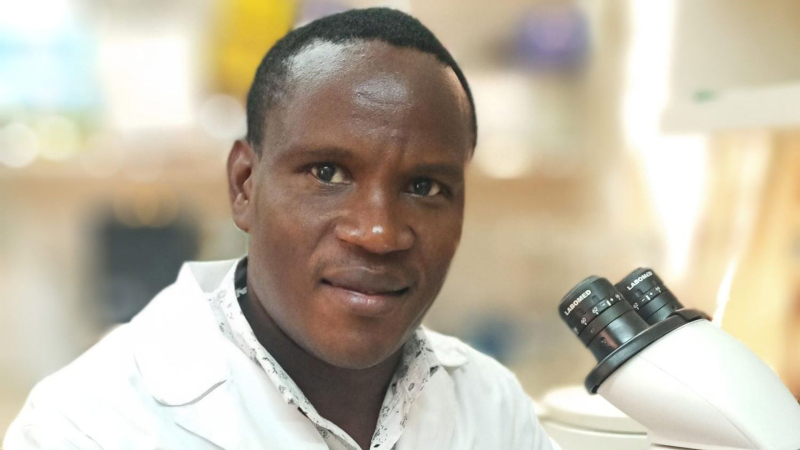
By combining their skills, they devised a joint project to produce high quality, low-cost mixture to increase soil fertility. They mix earthworms and beneficial soil bacteria to turn organic waste into a nutrient-rich mash. Farmers who cannot afford to buy manufactured fertilizers could capitalize on this low-cost technique to boost plant growth. The procedure will also help reduce the amount of chemicals released into the environment.
The project was selected for its potential impact on local communities and received a 2022–2024 TWAS collaborative research grant supported by Sida. Now the scientists are at work to find the best mixture for soil health, to keep local people fed, and to improve their livelihoods.
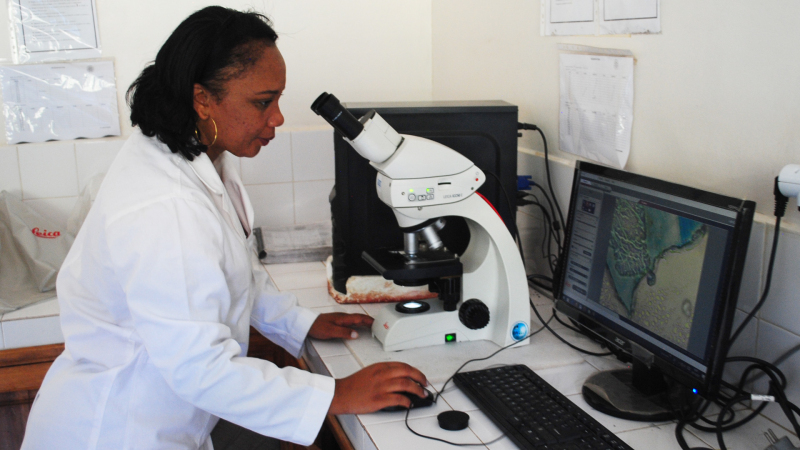
The Swedish International Development Cooperation Agency (Sida) has provided key support to TWAS since 1991. Through the well-established TWAS Research Grants Programme in Basic Sciences, which awards both individuals and groups, Sida and TWAS strengthen developing countries' capacity to take part in science.
The more-recent TWAS Research Grants Programme for Collaborative Research, launched in 2022, awards interdisciplinary projects carried out by two lead scientists: one woman and one man. The programme supports high-level scientists wishing to carry out their project in one of the science-and-technology-lagging countries (STLCs) identified by TWAS.
"Enhancing the mix of ingredients to create a substance that boosts soil productivity will revolutionize the farming practice among smallholder farmers," explained Njeru, of Kenyatta University in Nairobi, Kenya.
"Madagascar, and its southern regions in particular, face a very severe condition of food insecurity. This project aims to establish a standardized scientific approach to increase fertilizers’ production, soil fertility, and crop yield," said Baohanta of the National Centre for Environmental Research in Madagascar.
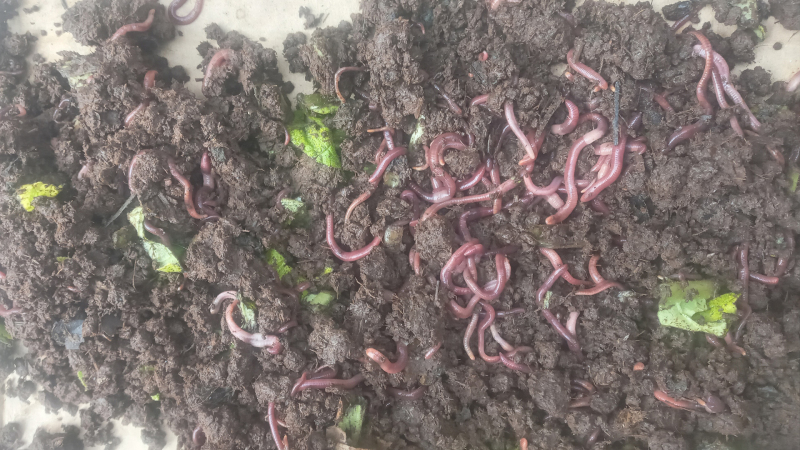
To be eligible for a collaborative grant, applicants must already be Sida grantees, and at least one must be from a UN-designated Least Developed Country, with the other being from an STLC. In 2022, four awards have been assigned to scientists’ pairs. The other three pairs that received a collaborative grant were from Bangladesh and Kenya, Bangladesh and Nepal, and Ghana and Senegal.
Njeru received a TWAS-Sida grant in 2017–2018, for a project on the management and conservation of plant-friendly fungi in semi-arid areas of Eastern Kenya. Baohanta was awarded a TWAS-Sida grant in 2018. Her project established criteria that facilitate the selection of plants that protect other plants from harsh conditions.
Garbage from worms is gold for farmers
According to FAO, agriculture accounts for approximately 20% of Africa's GDP, 60% of its labour force, and 20% of its total exports. Weakening soil fertility depletion is a challenge for the continent, where agriculture is the mainstay for many families.
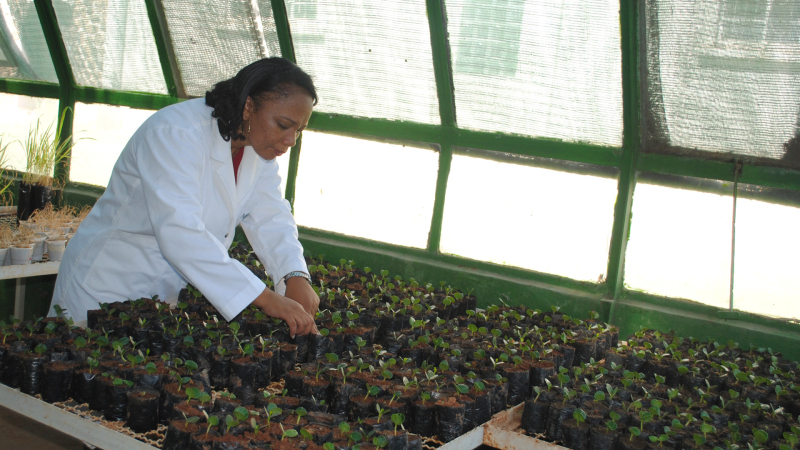
Kenya and Madagascar are no exception. Getting farmers out of the poverty cycle calls for addressing severe constraints such as low soil productivity and scarce irrigation. "Soil-nutrient depletion could be relieved by improving fertilizer use, but many farmers cannot afford costly inorganic products," said Njeru. In addition, fertilizer overuse would create further damage to the environment.
A more sustainable soil management, therefore, would allow achieving not only one, but several of the UN Sustainable Development Goals, in particular goals 2, 3, 12, and 15.
"We wish to establish a scientific standardized procedure to increase soil fertility—but without resorting to foreign materials—using local earthworms and bacteria," explained Njeru. "This is why we are testing native organisms because they are better fitted to local conditions and can further improve the final crop yield."
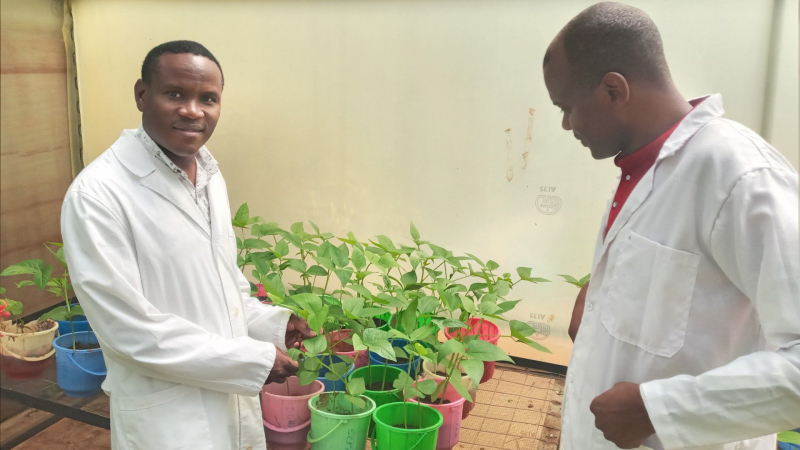
The microbial communities need to be carefully monitored throughout the transformative process because they change during their interaction with earthworms. Therefore the results may vary according to the starting conditions.
"In Madagascar, we have isolated three earthworm species able to degrade organic waste from different ecosystems, and different bacterial strains," says Baohanta. "We have now 24 mixed batches of worms and bacteria, and run three repetitions for each batch." To test the efficiency of the process, the scientists use four types of organic waste as starting material: household waste, fish waste, farming waste and water hyacinth.
The scientists aim to pinpoint the most efficient native earthworms and the ideal soil for their placement. After discovering the best combination, they will apply them to maize and common beans to assess how they boost soil fertility.
Why grants are important
Collaborations between developing countries can make a difference both for a scientist and a community. To date, more than 2,700 TWAS-Sida grants have supported over 2,000 scientists from 31 LDCs.
Tip: If you'd like to be notified when the calls open for TWAS research grants in 2024, please send an email to researchgrants@twas.org.
As Njeru confirmed, working with Baohanta is an educational experience, opening up new areas of interest. "This grant helps developing countries increase their capacity in science, and to nurture future generations of scientists," Njeru said.
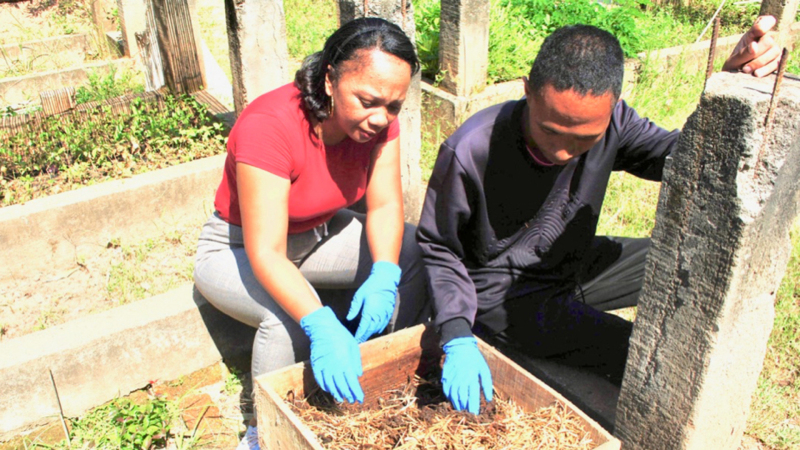
Thanks to the grant, Njeru is training a PhD student in microbial biotechnology, who is now isolating beneficial soil microorganisms that could accelerate the transformation process.
Baohanta, on her side, is planning to pay a visit to Njeru's lab, to learn her techniques for isolating bacteria. "The fact that we are complementary as scientists gives an extra value to the whole project, and allows us to better address real-life problems in our countries," she commented. And she added: "The Sida grant allows the expression of the woman scientist in me, enhancing my skills both in technology and in collaboration initiatives."
Cristina Serra

